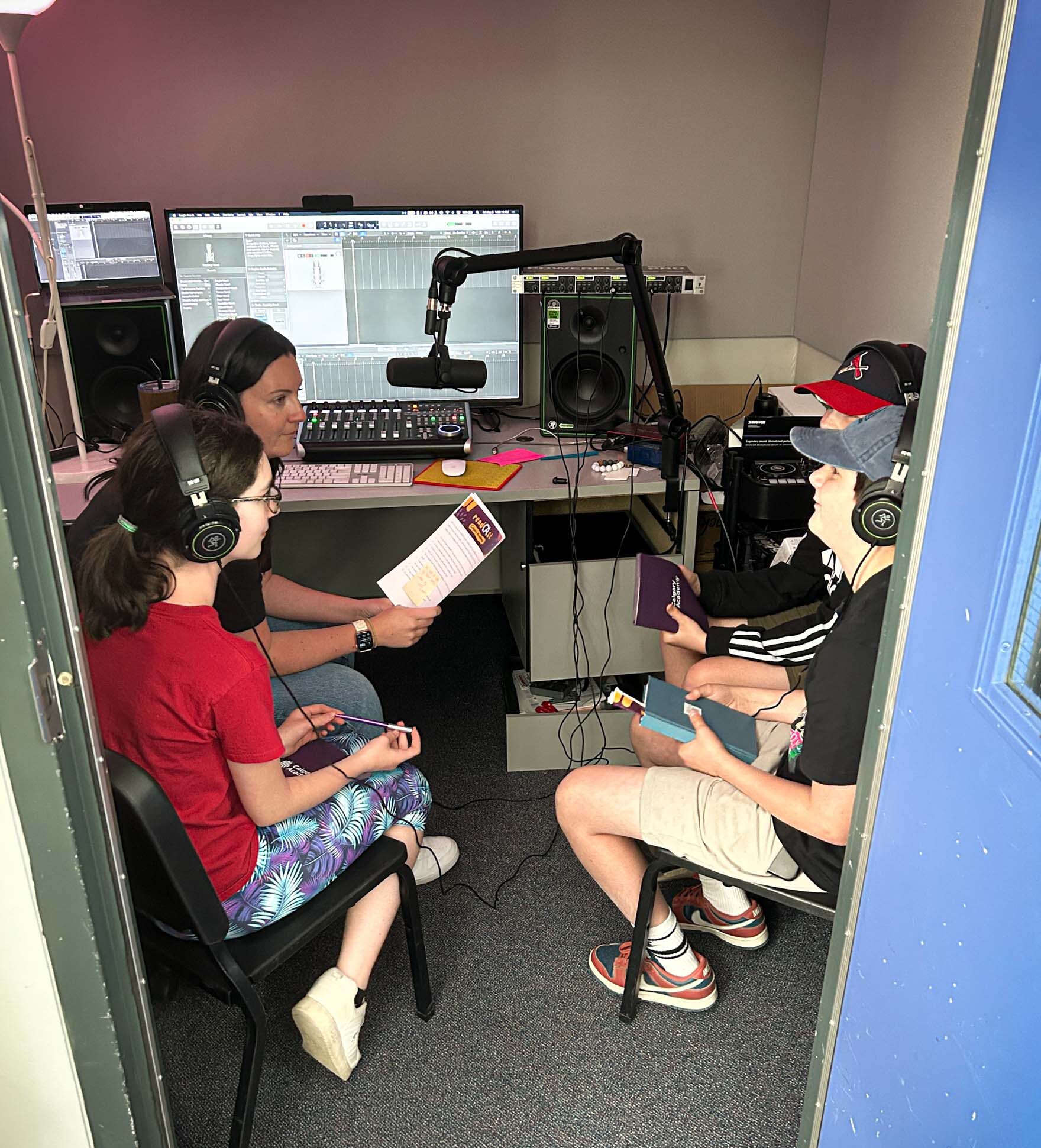Podcasts are an easy way to consume content wherever you are, and they offer something for everyone, from audiobooks to talk shows. While literature lovers may historically prefer the written word, podcasts provide a different space to process a novel and its messages. For people who are audio processors, podcasts can be an ideal way to listen to stories, gain knowledge, and enjoy their favourite content.
In education, this same idea can apply to students. At Calgary Academy, Junior School teacher Sophie Bresciani founded the readCAst podcast—a virtual book club between students and teachers.
The Beginnings of readCAst
The idea of a podcast has lived in Ms. Bresciani’s mind long before she hit record for readCAst’s first episode. Her previous experience with literacy, her love of podcasts, and her students’ excitement created the perfect moment to commit to the idea.
“Speaking and talking about reading is such a powerful tool… My love of literature and podcasts really came together for readCAst.”
This podcast is more than a fun atmosphere to talk about the latest literature—it offers students a unique space to improve various skills. It helps learners work on their public speaking while allowing them to share their opinions, disagreements, likes, and dislikes.
While a classroom provides these same opportunities, the idea of being on a podcast helps students prepare their thoughts more extensively for an audience broader than their classmates.
“I think readCAst offers students an opportunity to have a more thoughtful and considered perspective because they know they’re on the podcast.
In class, we can have some casual conversations, but I’ve always found as a reader, I’ll go to a book club, and after discussing with my friends… I’ll kind of develop a deeper understanding.” – Ms. Bresciani
A Successful First Session
The first readCAst session focused on the novel Refugee by Alan Gratz, a story of three refugee children in different times, including 1930s Germany, 1990s Cuba, and 2010s Syria.
 Ms. Bresciani chose this novel for the first readCAst recording because it’s one of the stories her students have read during class. She knew they would understand the novel, and have thoughts, opinions, and other ideas to discuss. Ms. Bresciani notes that besides being a fun experience, a podcast can help students process, understand, and apply the information they learn.
Ms. Bresciani chose this novel for the first readCAst recording because it’s one of the stories her students have read during class. She knew they would understand the novel, and have thoughts, opinions, and other ideas to discuss. Ms. Bresciani notes that besides being a fun experience, a podcast can help students process, understand, and apply the information they learn.
“A lot of students are verbal processors, and speaking out loud about their understanding is a big benefit… I think podcasts are valuable for learners who interpret the world in different ways.”
Before hitting record, Ms. Bresciani and her students completed a vocal warm-up to prepare their voices and minds for a thoughtful discussion.
One of her Grade 7 students, Scout B., felt the best part of the podcast was “getting to be together and talk about the book.”
All three students involved in the first podcast session were excited. However, no matter how prepared someone might feel, it’s still easy to feel nervous, especially when speaking in front of classmates and sitting in a recording booth. Another student, Marla L., stepped out of her comfort zone for the experience but was glad she joined the podcast.
“It was nerve-wracking but interesting. My stomach still feels weird… It was interesting to hear my peers’ opinions on the book.” – Marla
Session One is Complete, but There Are Many to Go
With the first session of readCAst recorded, Ms. Bresciani reflects on efforts to make this podcast a reality and the help of fellow CA teachers and staff, including Charlotte Nixon, Charity Helman, Dylan Dean, and Jason Valleau. As Ms. Bresciani puts it, an “incredible team came together for this.”
While the first episode’s audio is being edited, Ms. Bresciani plans for the next recording session. She is excited for the next book discussion with her students and a (hopefully) consistent schedule of once-a-month podcast sessions. She feels the unexpected nature of each episode keeps her hooked on the idea of readCAst—you never know what kind of thoughts a student has.
“I’m excited to see how the podcast grows and to have different students on each time and hear their perspectives. I trust that the students will share their authentic opinions.”
As she looks to the future of readCAst, Ms. Bresciani hopes to discuss more books, hear from more students, and release a polished first episode on June 1.
